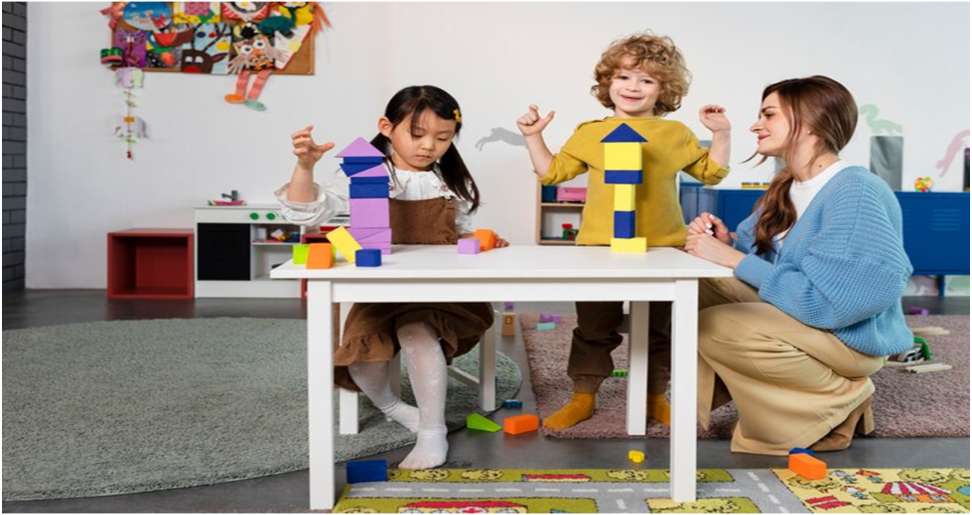In the nurturing environment of a preschool center, effective communication between parents and teachers plays a pivotal role in supporting the holistic development of young children. Establishing clear channels of communication not only fosters trust and collaboration but also ensures that both parents and teachers are well-informed and engaged in the child’s early education journey.
Building a Foundation of Trust
At the heart of effective parent-teacher communication in preschool settings lies the foundation of trust. Parents entrust their children to the care of teachers, making it essential for educators to maintain open and transparent communication channels. From the very beginning, preschool centers can initiate this process by welcoming parents warmly and providing clear information about communication policies and practices.
Open House and Orientation Sessions
Initiating communication begins even before the child’s first day at the preschool center. Hosting open house sessions or orientation programs allows parents to familiarize themselves with the facility, meet the teachers, and understand the curriculum and daily routines. These sessions serve as an opportunity for parents to ask questions, express concerns, and start building a rapport with the teaching staff.
Regular Updates on Daily Activities
Once the child begins attending the preschool, regular updates on daily activities become crucial. Teachers can maintain a daily or weekly communication log where they briefly outline the activities, lessons, and any notable achievements or challenges the child experienced during the day. This provides parents with insights into their child’s daily experiences and helps them engage in meaningful conversations with their child about their day at school.
Utilizing Technology for Real-Time Updates
In today’s digital age, leveraging technology can significantly enhance parent-teacher communication. Many preschool centers utilize apps or online platforms where teachers can share real-time updates, photos, and videos of children’s activities. This instant communication not only keeps parents informed but also allows them to feel more connected to their child’s learning journey throughout the day.
Scheduled Parent-Teacher Conferences
Formal parent-teacher conferences are pivotal moments for discussing a child’s progress, strengths, and areas for improvement. Preschool centers should schedule these conferences regularly, providing dedicated time for parents and teachers to have in-depth conversations about their child’s development. These meetings offer opportunities to set goals collaboratively and discuss strategies for supporting the child both at school and at home.
Encouraging Two-Way Communication
Effective communication is not just about sharing information; it also involves listening and understanding. Preschool centers can encourage two-way communication by actively seeking input from parents regarding their child’s interests, learning styles, and any concerns they may have. Teachers can use this valuable input to tailor their teaching approaches and classroom activities to better meet the needs of each child.
Celebrating Milestones and Achievements
Acknowledging and celebrating children’s milestones and achievements is essential for fostering a positive learning environment. Preschool centers can inform parents about these accomplishments through personalized notes or certificates, showcasing the child’s progress and boosting their self-esteem. Such recognition also reinforces the importance of the partnership between parents and teachers in nurturing the child’s overall development.
Conclusion
Effective parent-teacher communication in preschool settings is fundamental to creating a supportive and enriching educational experience for young children. By prioritizing trust, maintaining regular updates, leveraging technology, and fostering two-way communication, preschool centers can build strong partnerships with parents that positively impact children’s development. Emphasizing collaboration, transparency, and mutual respect ensures that parents and teachers work together as allies in nurturing each child’s unique potential during these formative years.
Also Read:-
- What Is Now.gg? Can You Play Roblox Games On It?
- What Are Camel Toes? Celebrity Camel Toe Moments You Need To Know About!
- Progressive Jackpots: When to Dream Big (Explain progressive jackpots and how to identify them)



order valacyclovir 500mg sale – diflucan 200mg oral generic fluconazole 200mg
Your comment is awaiting moderation.